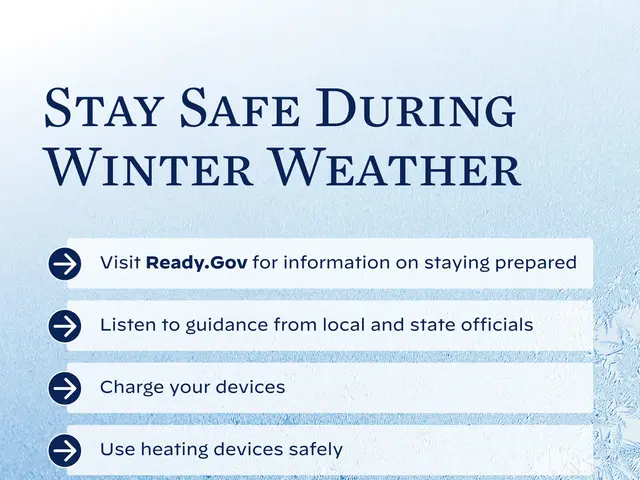German Drivers Face Fines for Not Using Winter Tires in Harsh Conditions
German drivers must adapt their tires to winter road conditions, even without a blanket winter tire mandate. Failing to do so can result in fines and reduced insurance payouts.
Winter tires are crucial when roads are covered in black ice, slush, snow, or frost. They must have a minimum tread depth of 1.6 mm, with the ADAC recommending at least 4 mm for safety. All-season tires are legally recognized as winter tires only if they bear the Alpine symbol.
Drivers involved in accidents on winter roads while using summer tires may face reduced insurance payouts due to gross negligence. Germany does not have a blanket winter tire mandate; instead, a situational requirement applies based on road conditions. The 'O to O' rule (October to Easter) is not legally binding but is commonly used as a guideline.
Winter tires must be mounted on all four wheels and bear the Alpine symbol. Trailers are exempt from the winter tire requirement, but the ADAC advises fitting them with appropriate tires. Motorcycles, agricultural and forestry vehicles, and motorized wheelchairs are also exempt.
Drivers caught without winter tires in winter conditions face a €60 fine and one penalty point in Flensburg. It is essential to check road conditions and adapt tires accordingly to ensure safety and avoid penalties.
Read also:
- United States tariffs pose a threat to India, necessitating the recruitment of adept negotiators or strategists, similar to those who had influenced Trump's decisions.
- Weekly happenings in the German Federal Parliament (Bundestag)
- Massive 8.8 earthquake hits off the coast of Russia's Kamchatka Peninsula, prompting Japan to issue a tsunami alert.
- Court petitions to reverse established decision on same-sex marriage legalization







